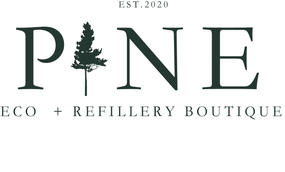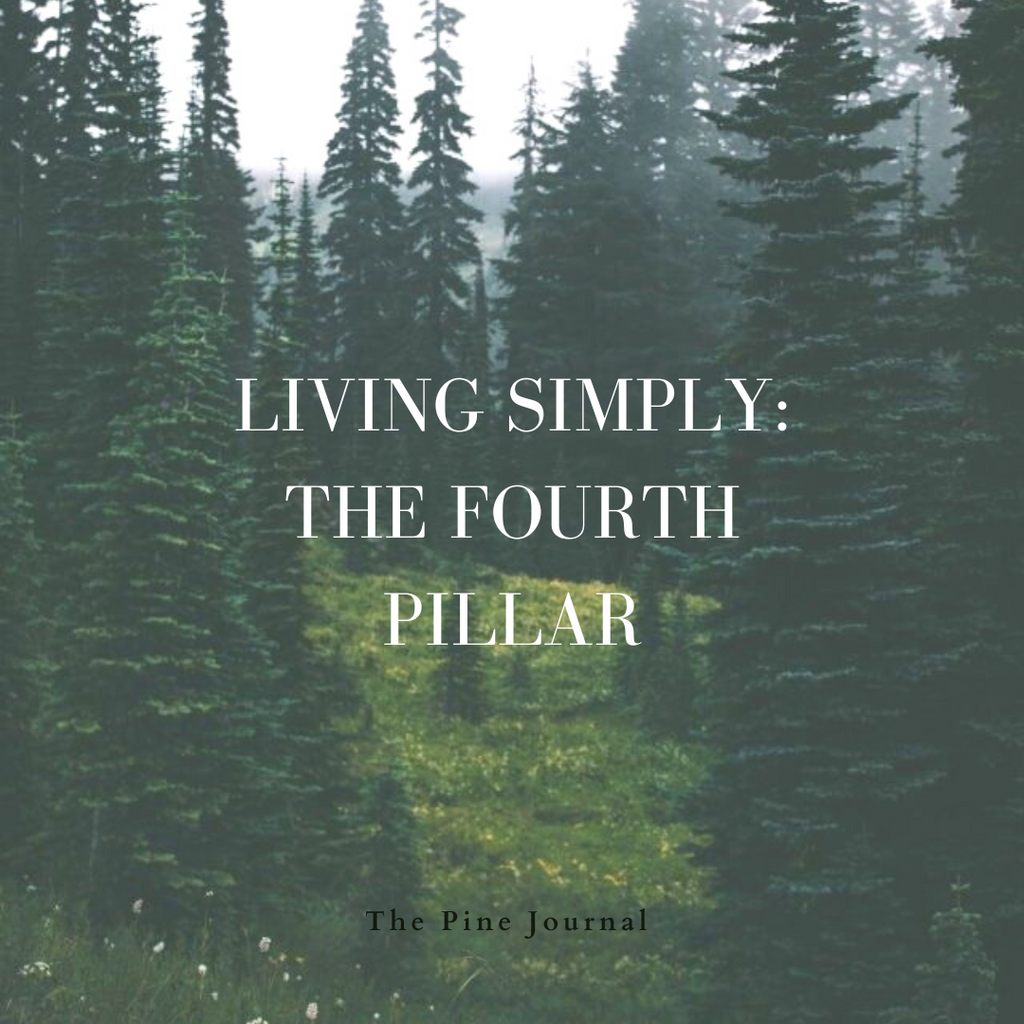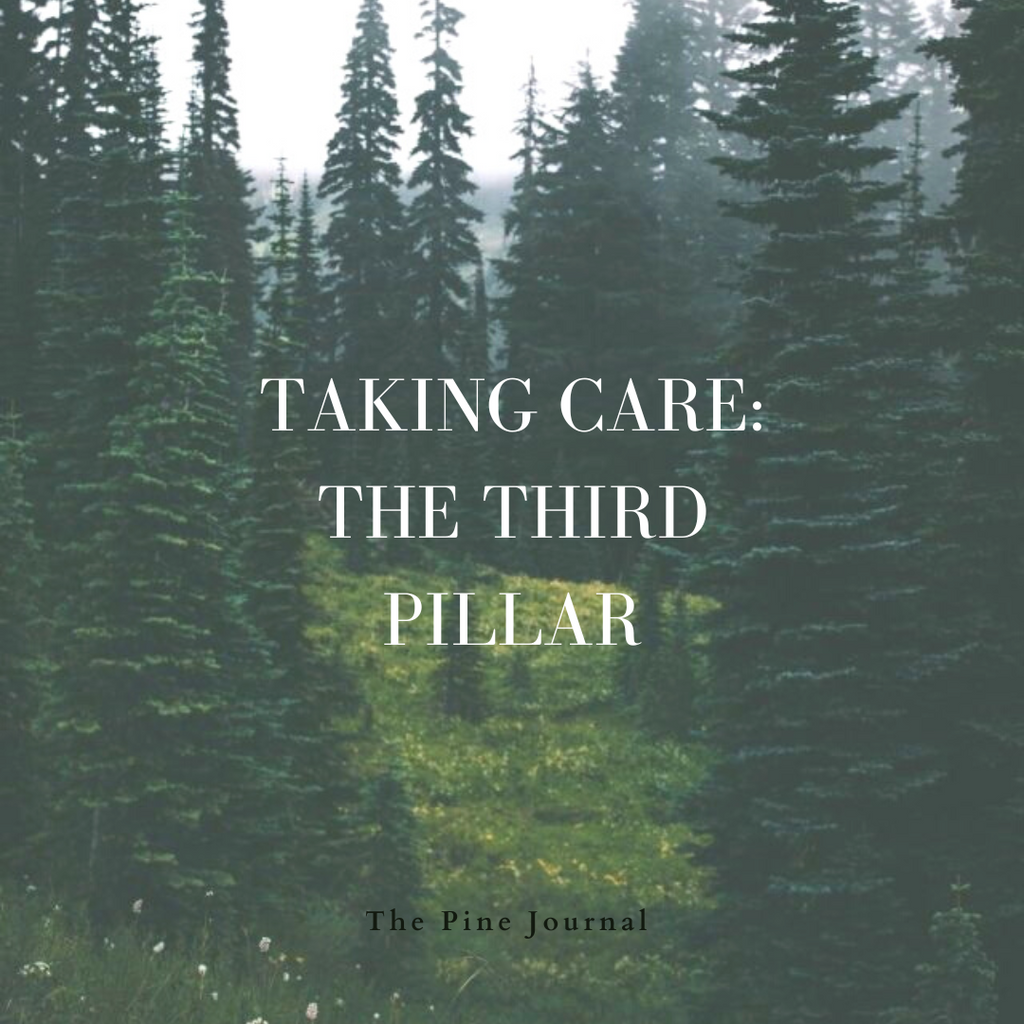Living Simply: The Fourth Pillar (of Ethics)
Living simply involves acting on behalf of nature's best interest; which means living our life in accordance with truth. That's really the heart of Pine and our call to action; Let's Take Care.
The fourth (and last) pillar of ethics that Pine stands on is taking action.
As talked about previously, nature's plant based ethic is one of cooperation and beneficial relationship. And living simply is an emulation of this ethic.
As we've said before small businesses have the biggest hearts. The problem with (some.. maybe most) big business is that it can become transactional. You can see this happen with the consumer trend of expendability. And it's far more likely that small businesses will make products mindfully, which helps them maintain their relationship with consumers. So by buying from and supporting small business, we're actively emanating a plant-based ethic that is essential to sustainable practices.
To emulate a plant based ethic, it starts with the individual. All of this won't have an impact if each of us don't change our habits and make different choices. We're at a point in society where marketing is louder than truth. Large companies are not legally required to let you know what's in a product because the law that addresses cleaning product labeling (passed 1976) left it to the manufacturers to say what chemicals are safe.
The words we often see branded on a product are there to influence the way you think about a product, not because it's truth. For example, dawn can use 'gentle' and 'biodegradable' even if there are chemicals in it that will disrupt your hormone signalling (endocrine disruptors) and it's sold in a plastic bottle that won't ever biodegrade.
Living simply therefore has to involve a mental detox from the marketing lies we're bombarded with all the time. Just because a product is on the shelf, that doesn't mean it's safe.
So what it really all comes down to is changing habits. I'll be honest, it bugs me when people say 'that's just the way it is.' I don't agree; things become 'the way they are' out of unchecked habit. And habits are mutable. We don't need to be creating so much waste, and we don't need products made with harmful ingredients.
Paige and I started by replacing plastic wrap with beeswax wraps and when we realized how much less plastic we were throwing out and our food was still fresh, we wanted to do more and make more changes. So much of our lifestyle is just habit. And by making sustainable changes or adopting practices like refilling, it always leaves you feeling good because it's an easy way to do good. And when you keep doing good, your life gets better.
We want to help create a world with less packaging, less chemicals, less waste, and less stress, and we hope you will too!


